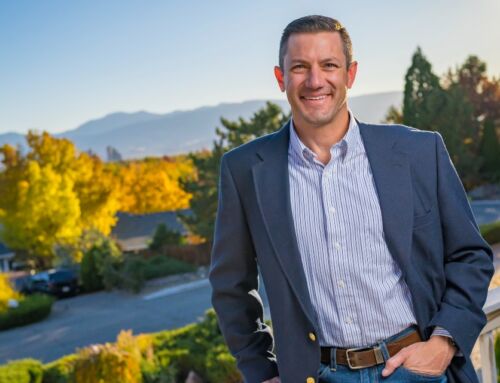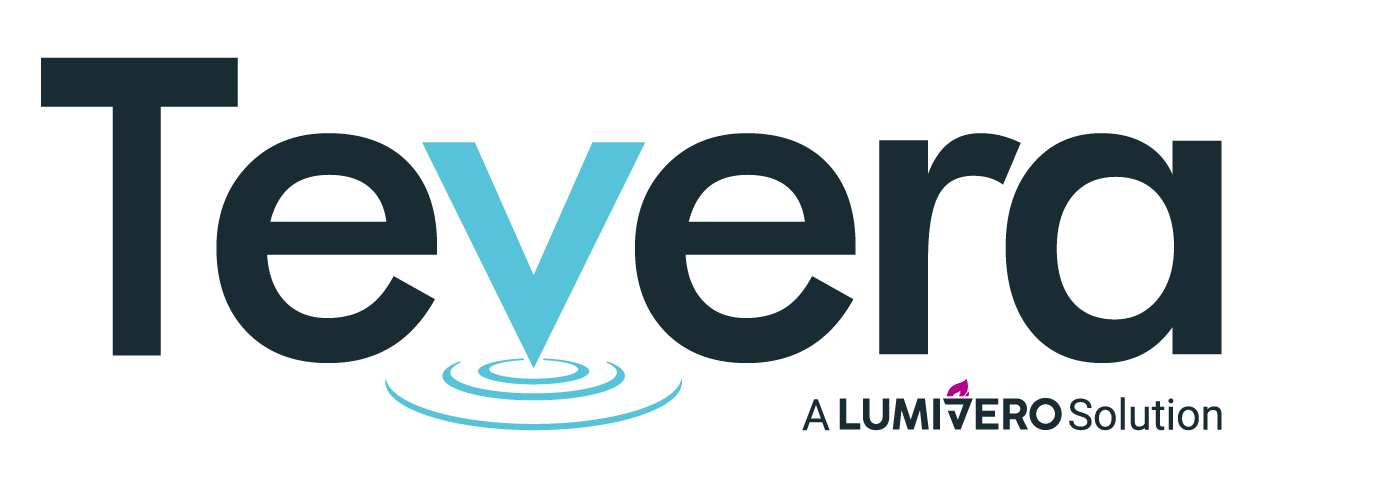A Guide to Getting Your Counseling License and Navigating Your First Career Steps as a Counselor
Counselors are vital to our modern society — from helping people overcome day-to-day issues to tackling long-term trauma. There are many reasons why people decide to pursue a career in counseling. Some people are naturally inclined towards joining the helping professions while others discovered their love for counseling later in their career. Read about one counselor’s journey from recovery inspired a profession in counseling.
Counselors offer advice and treatment plans to help people grow and deal with issues that impact their mental and emotional stability. For this reason, many people are drawn to a career in counseling. But starting a career in counseling can be tricky if you do not check all the national and state requirements.
In this guide, we will outline the different steps you need to complete to get licensed and how to navigate your first post-graduation career steps. We will walk through what you need to complete to get a counseling license and how to start looking for post-graduation internships and jobs.
What Do You Need to Get Licensed?
There are a few different things you need to complete in order to get licensed to practice counseling, including picking the right degree, completing fieldwork, and passing an exam. Researching early helps you identify what you need for your specific state so that you don’t miss a step. It is especially important to check state requirements for a counseling license — each state has different requirements. To get a counseling license, you need to:
-
Get a master’s degree in counseling
-
Complete clinical supervision hours (practicum)
-
Pass the counselor exam (NCE and NCMHCE)
-
Obtain additional certifications for state requirements.
We’ll go through each of these steps individually so you have a better idea of what to expect as you step into counseling as a career.
Choose the Right Degree
The first step to pursuing a career in counseling is picking the right bachelor’s and master’s degrees. You are free to study any subject for your bachelor’s degree. However, taking psychology or human services can provide you with a strong foundation for a counseling career.
Next, you will need to complete a Master’s Degree in Counseling. Most master’s programs take up to two years to complete, full-time. During this program, you will take classes on psychology, sociology, statistics, research, counseling, and more, depending on the type of counseling you want to pursue.
For your master’s degree, you will need to enroll in a Council for Accreditation of Counseling and Related Educational Programs (CACREP) or Commission on Accreditation for Marriage and Family Therapy Education (COAMFTE) accredited program or a program accredited by a regional accrediting organization recognized by the Council for Higher Education Accreditation (CHEA).
CACREP and COAMFTE programs are designed to meet the basic requirements and standards for a career in counseling. These programs meet the state licensing requirements you will need in order to get your professional license. Additionally, the reputation of these programs will help you secure internships and jobs.
Choose Your Specialty
There are many different areas and types of counseling that you can pursue. Each type of counseling will require a specific college degree and certification. It is important to consider this when applying to grad school and getting certified. Here is a quick overview of the different types of counselors.
General Counselors: General counselors handle a variety of issues people face in their day-to-day. These include workplace problems, relationship issues, time management, anxieties, substance abuse, and the likes. Their treatment plans help individuals cope with these issues and try to overcome them.
School Counselors: School counselors focus on student issues and work with students from kindergarten through college. They are primarily considered with issues students face that may impact their education. This includes learning disabilities, self-image issues, peer pressure and bullying, substance abuse, and more.
Pastoral Counselors: Pastoral counselors combine psychology and religion to provide patients with emotional and spiritual support. This type of counseling brings psychology into faith-based roles and organizations. These counselors work with people who are looking for religious or spiritual guidance, struggling with their faith, suffering from disease, and so on.
Recreational Counselors: Recreational counselors work with people who have been injured and want to become healthy and active. These counselors help patients with their physical conditions as well as their mental and emotional state.
Rehabilitation Counselors: Rehabilitation counselors work with individuals who have long-term physical, mental, or emotional issues and disabilities. These counselors help their patients adjust by teaching them techniques to manage their existing limitations.
Mental Health Counselors: Mental health counselors focus on issues impacting mental health. These include mental and personality disorders, obsessive behaviors, anxiety, depression, trauma, self-esteem issues, relationship issues, and more.
Marriage and Family Therapists: Licensed marriage and family therapists focus on a wide array of issues affecting family life. This includes development and behavioral issues, marital problems, domestic violence and abuse, substance abuse, and more.
Substance Abuse Counselors: Substance abuse counselors diagnose, assess, and develop treatment plans for patients suffering from substance abuse such as alcohol and drug addiction, gambling addiction, and eating disorders.
Complete Your Practicum
A practicum is a supervised clinical experience in the field that allows students to observe and document how counselors and professionals do their job. Some accredited programs may require you to complete a counseling internship as well.
In order to get licensed, interested counselors need to obtain a minimum of documented hours in supervised fieldwork. The total number of hours you need depends on the state licensing requirement and your concentration or specialty.
Most accredited programs will require you to complete an on-site practicum as part of the curriculum. And these hours can count towards your state licensing requirements. However, you might need to complete additional fieldwork after graduating, if your hours do not meet state requirements.
Practicum hours usually range from 100-300 hours. During your practicum, you will get to work closely with licensed counselors or therapists and attend meetings and training. You may also write reports and clinical notes. The practicum is designed to help you develop professionally.
Pass the Exam
The National Board for Certified Counselors (NBCC) offers a National Certified Counselor (NCC) license to individuals who fulfill the requirements to be a licensed counselor. To be certified and licensed to practice counseling, you will need to take a counseling exam.
National Counselor Exam (NCE) for Licensure is required on a national level. This exam is designed to test your understanding and expertise and to determine your ability to offer counseling services.
If you plan on pursuing mental health counseling, then you will need to take an additional exam — the National Clinical Mental Health Counseling Examination (NCMHCE).
Check with your state for specific exams, background checks, and other requirements to be licensed in your state.
What to Do Once You Graduate?
Once you get your license, you are ready to start practicing counseling. Now, you need to look for an internship that gives you adequate field experience and that will further boost your resume when you apply for a counseling job.
For internships and jobs, you will need to watch job boards as well as network with your professors and local organizations. The more you get your name out there, the more likely you will find a job that suits your needs.
Finding a Post-Grad Internship
There are different types of counseling internships you can participate in. It is common for many graduate students to get internships at the on-campus counseling facility. However, you can also look at off-campus facilities in your location such as mental health treatment centers, school and college campuses, correctional facilities, nursing homes, rehabilitation centers, and so on.
First, speak with your academic advisor or faculty members to learn about campus internship placements or other avenues students have used in the past. Look at school job boards to see available internship opportunities. Network with professors and faculties — they may be counselors themselves and need someone to intern at their practice or they may know someone looking for an intern. You should also participate and engage with professional counseling associations and organizations on a local, regional, and national level.
Conduct research and locate organizations that specialize in preparing new counselors or that specialize in the type of counseling you wish to pursue. When searching for post-grad internships, look for one that will closely mimic the responsibilities in your future work position.
The general recommendation is to start applying at least six months in advance for any counseling internship program. Study job and internship descriptions to prepare your resume and cover letter in a way that speaks to each organization individually. You may even consider doing more than one internship to gain strong practical experiences and boost your resume.
Finding Your First Post-Internship Job as a Fully Licensed Counselor
Once you complete your internship, your skillset and experience will have prepared you for your first job in counseling. In some cases, you may even be able to turn your internship into a job. Otherwise, you will need to start job-hunting through job boards and connecting with your professional network.
Study various job descriptions and identify keywords for positions you want. You could look at popular job boards such as LinkedIn, Indeed, and Glassdoor. Or, you could check out Tevera’s specialized job site that allows you to quickly find your dream job and enables employers to discover you.
Even if you find a good opening on these job boards, apply through the company’s website instead. You may also look at residential or IOP programs for openings. You can connect with local and regional agencies to see if they are hiring as well as reach out to your professional network.
Learn more about preparing for your first job as a counselor from Dominique Oster, a former HR specialist-turned-counseling student.
Continuing Education
Once you are licensed to practice counseling, you may choose to take your training further by earning additional licenses relevant to your specialty. Some advanced credentials include:
-
Certified Clinical Mental Health Counselor (CCMHC)
-
Commission on Rehabilitation Counselor Certification (CRCC)
-
Master Addictions Counselor (MAC)
-
Forensic Health Evaluators (FHE)
-
Global Career Development Facilitator (GCDF)
-
Certified Family Therapist (CFT)
-
National Certified School Counselor (NCSC)
Each state may also have its own requirements to maintain your license. Check for state requirements and re-certification processes which may be needed every three and ten years.
You may even choose to do a doctoral degree to further your counseling career. A doctoral degree will give you the opportunity to become a director or manager as well as teach counseling courses.
There is a lot to complete in order to start a career in counseling, but the ultimate reward is the job you get to do: helping people live their best lives. And there is an abundance of resources available to help you through this journey as you get licensed and start practicing.
One of those resources is signing up for the Tevera Career & Recruitment Network, a specialized job site for behavioral health professionals in social work, counseling, therapy, substance abuse, psychology, and human services.
Sign up for the Tevera Career & Recruitment Network, upload your resume, and find your dream job!
SOLUTIONS
RELATED POSTS
PRODUCT OVERVIEW
See how Tevera can elevate your program.
A Guide to Getting Your Counseling License and Navigating Your First Career Steps as a Counselor
Counselors are vital to our modern society — from helping people overcome day-to-day issues to tackling long-term trauma. There are many reasons why people decide to pursue a career in counseling. Some people are naturally inclined towards joining the helping professions while others discovered their love for counseling later in their career. Read about one counselor’s journey from recovery inspired a profession in counseling.
Counselors offer advice and treatment plans to help people grow and deal with issues that impact their mental and emotional stability. For this reason, many people are drawn to a career in counseling. But starting a career in counseling can be tricky if you do not check all the national and state requirements.
In this guide, we will outline the different steps you need to complete to get licensed and how to navigate your first post-graduation career steps. We will walk through what you need to complete to get a counseling license and how to start looking for post-graduation internships and jobs.
What Do You Need to Get Licensed?
There are a few different things you need to complete in order to get licensed to practice counseling, including picking the right degree, completing fieldwork, and passing an exam. Researching early helps you identify what you need for your specific state so that you don’t miss a step. It is especially important to check state requirements for a counseling license — each state has different requirements. To get a counseling license, you need to:
-
Get a master’s degree in counseling
-
Complete clinical supervision hours (practicum)
-
Pass the counselor exam (NCE and NCMHCE)
-
Obtain additional certifications for state requirements.
We’ll go through each of these steps individually so you have a better idea of what to expect as you step into counseling as a career.
Choose the Right Degree
The first step to pursuing a career in counseling is picking the right bachelor’s and master’s degrees. You are free to study any subject for your bachelor’s degree. However, taking psychology or human services can provide you with a strong foundation for a counseling career.
Next, you will need to complete a Master’s Degree in Counseling. Most master’s programs take up to two years to complete, full-time. During this program, you will take classes on psychology, sociology, statistics, research, counseling, and more, depending on the type of counseling you want to pursue.
For your master’s degree, you will need to enroll in a Council for Accreditation of Counseling and Related Educational Programs (CACREP) or Commission on Accreditation for Marriage and Family Therapy Education (COAMFTE) accredited program or a program accredited by a regional accrediting organization recognized by the Council for Higher Education Accreditation (CHEA).
CACREP and COAMFTE programs are designed to meet the basic requirements and standards for a career in counseling. These programs meet the state licensing requirements you will need in order to get your professional license. Additionally, the reputation of these programs will help you secure internships and jobs.
Choose Your Specialty
There are many different areas and types of counseling that you can pursue. Each type of counseling will require a specific college degree and certification. It is important to consider this when applying to grad school and getting certified. Here is a quick overview of the different types of counselors.
General Counselors: General counselors handle a variety of issues people face in their day-to-day. These include workplace problems, relationship issues, time management, anxieties, substance abuse, and the likes. Their treatment plans help individuals cope with these issues and try to overcome them.
School Counselors: School counselors focus on student issues and work with students from kindergarten through college. They are primarily considered with issues students face that may impact their education. This includes learning disabilities, self-image issues, peer pressure and bullying, substance abuse, and more.
Pastoral Counselors: Pastoral counselors combine psychology and religion to provide patients with emotional and spiritual support. This type of counseling brings psychology into faith-based roles and organizations. These counselors work with people who are looking for religious or spiritual guidance, struggling with their faith, suffering from disease, and so on.
Recreational Counselors: Recreational counselors work with people who have been injured and want to become healthy and active. These counselors help patients with their physical conditions as well as their mental and emotional state.
Rehabilitation Counselors: Rehabilitation counselors work with individuals who have long-term physical, mental, or emotional issues and disabilities. These counselors help their patients adjust by teaching them techniques to manage their existing limitations.
Mental Health Counselors: Mental health counselors focus on issues impacting mental health. These include mental and personality disorders, obsessive behaviors, anxiety, depression, trauma, self-esteem issues, relationship issues, and more.
Marriage and Family Therapists: Licensed marriage and family therapists focus on a wide array of issues affecting family life. This includes development and behavioral issues, marital problems, domestic violence and abuse, substance abuse, and more.
Substance Abuse Counselors: Substance abuse counselors diagnose, assess, and develop treatment plans for patients suffering from substance abuse such as alcohol and drug addiction, gambling addiction, and eating disorders.
Complete Your Practicum
A practicum is a supervised clinical experience in the field that allows students to observe and document how counselors and professionals do their job. Some accredited programs may require you to complete a counseling internship as well.
In order to get licensed, interested counselors need to obtain a minimum of documented hours in supervised fieldwork. The total number of hours you need depends on the state licensing requirement and your concentration or specialty.
Most accredited programs will require you to complete an on-site practicum as part of the curriculum. And these hours can count towards your state licensing requirements. However, you might need to complete additional fieldwork after graduating, if your hours do not meet state requirements.
Practicum hours usually range from 100-300 hours. During your practicum, you will get to work closely with licensed counselors or therapists and attend meetings and training. You may also write reports and clinical notes. The practicum is designed to help you develop professionally.
Pass the Exam
The National Board for Certified Counselors (NBCC) offers a National Certified Counselor (NCC) license to individuals who fulfill the requirements to be a licensed counselor. To be certified and licensed to practice counseling, you will need to take a counseling exam.
National Counselor Exam (NCE) for Licensure is required on a national level. This exam is designed to test your understanding and expertise and to determine your ability to offer counseling services.
If you plan on pursuing mental health counseling, then you will need to take an additional exam — the National Clinical Mental Health Counseling Examination (NCMHCE).
Check with your state for specific exams, background checks, and other requirements to be licensed in your state.
What to Do Once You Graduate?
Once you get your license, you are ready to start practicing counseling. Now, you need to look for an internship that gives you adequate field experience and that will further boost your resume when you apply for a counseling job.
For internships and jobs, you will need to watch job boards as well as network with your professors and local organizations. The more you get your name out there, the more likely you will find a job that suits your needs.
Finding a Post-Grad Internship
There are different types of counseling internships you can participate in. It is common for many graduate students to get internships at the on-campus counseling facility. However, you can also look at off-campus facilities in your location such as mental health treatment centers, school and college campuses, correctional facilities, nursing homes, rehabilitation centers, and so on.
First, speak with your academic advisor or faculty members to learn about campus internship placements or other avenues students have used in the past. Look at school job boards to see available internship opportunities. Network with professors and faculties — they may be counselors themselves and need someone to intern at their practice or they may know someone looking for an intern. You should also participate and engage with professional counseling associations and organizations on a local, regional, and national level.
Conduct research and locate organizations that specialize in preparing new counselors or that specialize in the type of counseling you wish to pursue. When searching for post-grad internships, look for one that will closely mimic the responsibilities in your future work position.
The general recommendation is to start applying at least six months in advance for any counseling internship program. Study job and internship descriptions to prepare your resume and cover letter in a way that speaks to each organization individually. You may even consider doing more than one internship to gain strong practical experiences and boost your resume.
Finding Your First Post-Internship Job as a Fully Licensed Counselor
Once you complete your internship, your skillset and experience will have prepared you for your first job in counseling. In some cases, you may even be able to turn your internship into a job. Otherwise, you will need to start job-hunting through job boards and connecting with your professional network.
Study various job descriptions and identify keywords for positions you want. You could look at popular job boards such as LinkedIn, Indeed, and Glassdoor. Or, you could check out Tevera’s specialized job site that allows you to quickly find your dream job and enables employers to discover you.
Even if you find a good opening on these job boards, apply through the company’s website instead. You may also look at residential or IOP programs for openings. You can connect with local and regional agencies to see if they are hiring as well as reach out to your professional network.
Learn more about preparing for your first job as a counselor from Dominique Oster, a former HR specialist-turned-counseling student.
Continuing Education
Once you are licensed to practice counseling, you may choose to take your training further by earning additional licenses relevant to your specialty. Some advanced credentials include:
-
Certified Clinical Mental Health Counselor (CCMHC)
-
Commission on Rehabilitation Counselor Certification (CRCC)
-
Master Addictions Counselor (MAC)
-
Forensic Health Evaluators (FHE)
-
Global Career Development Facilitator (GCDF)
-
Certified Family Therapist (CFT)
-
National Certified School Counselor (NCSC)
Each state may also have its own requirements to maintain your license. Check for state requirements and re-certification processes which may be needed every three and ten years.
You may even choose to do a doctoral degree to further your counseling career. A doctoral degree will give you the opportunity to become a director or manager as well as teach counseling courses.
There is a lot to complete in order to start a career in counseling, but the ultimate reward is the job you get to do: helping people live their best lives. And there is an abundance of resources available to help you through this journey as you get licensed and start practicing.
One of those resources is signing up for the Tevera Career & Recruitment Network, a specialized job site for behavioral health professionals in social work, counseling, therapy, substance abuse, psychology, and human services.
Sign up for the Tevera Career & Recruitment Network, upload your resume, and find your dream job!
A Guide to Getting Your Counseling License and Navigating Your First Career Steps as a Counselor
Counselors are vital to our modern society — from helping people overcome day-to-day issues to tackling long-term trauma. There are many reasons why people decide to pursue a career in counseling. Some people are naturally inclined towards joining the helping professions while others discovered their love for counseling later in their career. Read about one counselor’s journey from recovery inspired a profession in counseling.
Counselors offer advice and treatment plans to help people grow and deal with issues that impact their mental and emotional stability. For this reason, many people are drawn to a career in counseling. But starting a career in counseling can be tricky if you do not check all the national and state requirements.
In this guide, we will outline the different steps you need to complete to get licensed and how to navigate your first post-graduation career steps. We will walk through what you need to complete to get a counseling license and how to start looking for post-graduation internships and jobs.
What Do You Need to Get Licensed?
There are a few different things you need to complete in order to get licensed to practice counseling, including picking the right degree, completing fieldwork, and passing an exam. Researching early helps you identify what you need for your specific state so that you don’t miss a step. It is especially important to check state requirements for a counseling license — each state has different requirements. To get a counseling license, you need to:
-
Get a master’s degree in counseling
-
Complete clinical supervision hours (practicum)
-
Pass the counselor exam (NCE and NCMHCE)
-
Obtain additional certifications for state requirements.
We’ll go through each of these steps individually so you have a better idea of what to expect as you step into counseling as a career.
Choose the Right Degree
The first step to pursuing a career in counseling is picking the right bachelor’s and master’s degrees. You are free to study any subject for your bachelor’s degree. However, taking psychology or human services can provide you with a strong foundation for a counseling career.
Next, you will need to complete a Master’s Degree in Counseling. Most master’s programs take up to two years to complete, full-time. During this program, you will take classes on psychology, sociology, statistics, research, counseling, and more, depending on the type of counseling you want to pursue.
For your master’s degree, you will need to enroll in a Council for Accreditation of Counseling and Related Educational Programs (CACREP) or Commission on Accreditation for Marriage and Family Therapy Education (COAMFTE) accredited program or a program accredited by a regional accrediting organization recognized by the Council for Higher Education Accreditation (CHEA).
CACREP and COAMFTE programs are designed to meet the basic requirements and standards for a career in counseling. These programs meet the state licensing requirements you will need in order to get your professional license. Additionally, the reputation of these programs will help you secure internships and jobs.
Choose Your Specialty
There are many different areas and types of counseling that you can pursue. Each type of counseling will require a specific college degree and certification. It is important to consider this when applying to grad school and getting certified. Here is a quick overview of the different types of counselors.
General Counselors: General counselors handle a variety of issues people face in their day-to-day. These include workplace problems, relationship issues, time management, anxieties, substance abuse, and the likes. Their treatment plans help individuals cope with these issues and try to overcome them.
School Counselors: School counselors focus on student issues and work with students from kindergarten through college. They are primarily considered with issues students face that may impact their education. This includes learning disabilities, self-image issues, peer pressure and bullying, substance abuse, and more.
Pastoral Counselors: Pastoral counselors combine psychology and religion to provide patients with emotional and spiritual support. This type of counseling brings psychology into faith-based roles and organizations. These counselors work with people who are looking for religious or spiritual guidance, struggling with their faith, suffering from disease, and so on.
Recreational Counselors: Recreational counselors work with people who have been injured and want to become healthy and active. These counselors help patients with their physical conditions as well as their mental and emotional state.
Rehabilitation Counselors: Rehabilitation counselors work with individuals who have long-term physical, mental, or emotional issues and disabilities. These counselors help their patients adjust by teaching them techniques to manage their existing limitations.
Mental Health Counselors: Mental health counselors focus on issues impacting mental health. These include mental and personality disorders, obsessive behaviors, anxiety, depression, trauma, self-esteem issues, relationship issues, and more.
Marriage and Family Therapists: Licensed marriage and family therapists focus on a wide array of issues affecting family life. This includes development and behavioral issues, marital problems, domestic violence and abuse, substance abuse, and more.
Substance Abuse Counselors: Substance abuse counselors diagnose, assess, and develop treatment plans for patients suffering from substance abuse such as alcohol and drug addiction, gambling addiction, and eating disorders.
Complete Your Practicum
A practicum is a supervised clinical experience in the field that allows students to observe and document how counselors and professionals do their job. Some accredited programs may require you to complete a counseling internship as well.
In order to get licensed, interested counselors need to obtain a minimum of documented hours in supervised fieldwork. The total number of hours you need depends on the state licensing requirement and your concentration or specialty.
Most accredited programs will require you to complete an on-site practicum as part of the curriculum. And these hours can count towards your state licensing requirements. However, you might need to complete additional fieldwork after graduating, if your hours do not meet state requirements.
Practicum hours usually range from 100-300 hours. During your practicum, you will get to work closely with licensed counselors or therapists and attend meetings and training. You may also write reports and clinical notes. The practicum is designed to help you develop professionally.
Pass the Exam
The National Board for Certified Counselors (NBCC) offers a National Certified Counselor (NCC) license to individuals who fulfill the requirements to be a licensed counselor. To be certified and licensed to practice counseling, you will need to take a counseling exam.
National Counselor Exam (NCE) for Licensure is required on a national level. This exam is designed to test your understanding and expertise and to determine your ability to offer counseling services.
If you plan on pursuing mental health counseling, then you will need to take an additional exam — the National Clinical Mental Health Counseling Examination (NCMHCE).
Check with your state for specific exams, background checks, and other requirements to be licensed in your state.
What to Do Once You Graduate?
Once you get your license, you are ready to start practicing counseling. Now, you need to look for an internship that gives you adequate field experience and that will further boost your resume when you apply for a counseling job.
For internships and jobs, you will need to watch job boards as well as network with your professors and local organizations. The more you get your name out there, the more likely you will find a job that suits your needs.
Finding a Post-Grad Internship
There are different types of counseling internships you can participate in. It is common for many graduate students to get internships at the on-campus counseling facility. However, you can also look at off-campus facilities in your location such as mental health treatment centers, school and college campuses, correctional facilities, nursing homes, rehabilitation centers, and so on.
First, speak with your academic advisor or faculty members to learn about campus internship placements or other avenues students have used in the past. Look at school job boards to see available internship opportunities. Network with professors and faculties — they may be counselors themselves and need someone to intern at their practice or they may know someone looking for an intern. You should also participate and engage with professional counseling associations and organizations on a local, regional, and national level.
Conduct research and locate organizations that specialize in preparing new counselors or that specialize in the type of counseling you wish to pursue. When searching for post-grad internships, look for one that will closely mimic the responsibilities in your future work position.
The general recommendation is to start applying at least six months in advance for any counseling internship program. Study job and internship descriptions to prepare your resume and cover letter in a way that speaks to each organization individually. You may even consider doing more than one internship to gain strong practical experiences and boost your resume.
Finding Your First Post-Internship Job as a Fully Licensed Counselor
Once you complete your internship, your skillset and experience will have prepared you for your first job in counseling. In some cases, you may even be able to turn your internship into a job. Otherwise, you will need to start job-hunting through job boards and connecting with your professional network.
Study various job descriptions and identify keywords for positions you want. You could look at popular job boards such as LinkedIn, Indeed, and Glassdoor. Or, you could check out Tevera’s specialized job site that allows you to quickly find your dream job and enables employers to discover you.
Even if you find a good opening on these job boards, apply through the company’s website instead. You may also look at residential or IOP programs for openings. You can connect with local and regional agencies to see if they are hiring as well as reach out to your professional network.
Learn more about preparing for your first job as a counselor from Dominique Oster, a former HR specialist-turned-counseling student.
Continuing Education
Once you are licensed to practice counseling, you may choose to take your training further by earning additional licenses relevant to your specialty. Some advanced credentials include:
-
Certified Clinical Mental Health Counselor (CCMHC)
-
Commission on Rehabilitation Counselor Certification (CRCC)
-
Master Addictions Counselor (MAC)
-
Forensic Health Evaluators (FHE)
-
Global Career Development Facilitator (GCDF)
-
Certified Family Therapist (CFT)
-
National Certified School Counselor (NCSC)
Each state may also have its own requirements to maintain your license. Check for state requirements and re-certification processes which may be needed every three and ten years.
You may even choose to do a doctoral degree to further your counseling career. A doctoral degree will give you the opportunity to become a director or manager as well as teach counseling courses.
There is a lot to complete in order to start a career in counseling, but the ultimate reward is the job you get to do: helping people live their best lives. And there is an abundance of resources available to help you through this journey as you get licensed and start practicing.
One of those resources is signing up for the Tevera Career & Recruitment Network, a specialized job site for behavioral health professionals in social work, counseling, therapy, substance abuse, psychology, and human services.





















